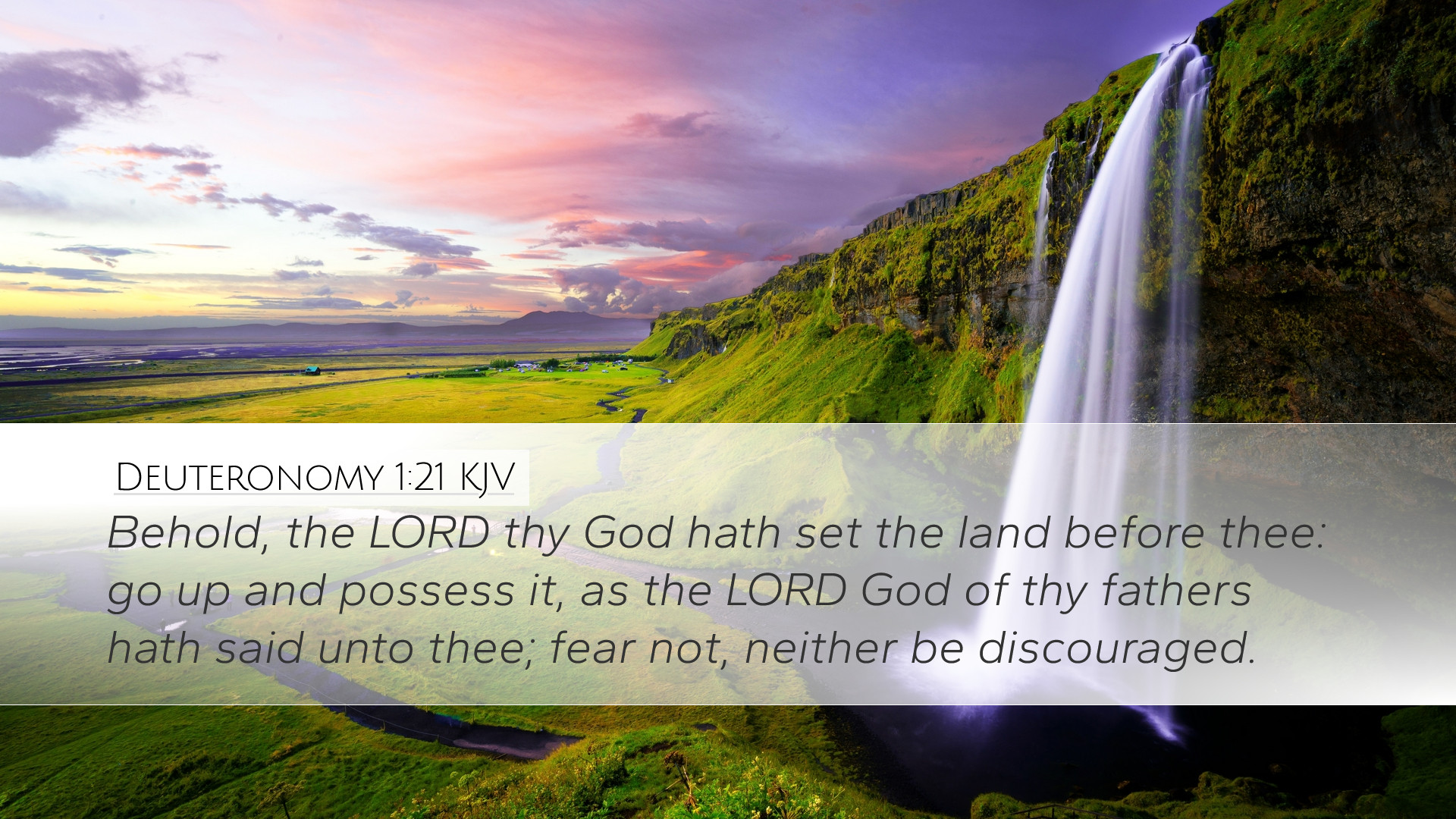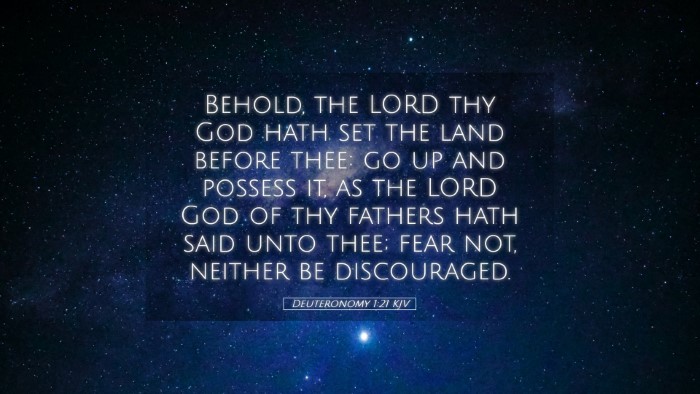Commentary on Deuteronomy 1:21
Verse Text: “Behold, the Lord thy God hath set the land before thee: go up and possess it, as the Lord God of thy fathers hath said unto thee; fear not, neither be discouraged.”
Overview and Context
This verse occurs within the context of Moses’ address to the Israelites, reminding them of God’s promises as they stand on the brink of entering the Promised Land. The backdrop is rich with historical significance, as it calls to mind the previous lack of faith that led to a forty-year delay in reaching the land promised to their ancestors.
Theological Significance
This segment of Deuteronomy serves not just as a recollection of God’s promises but as an exhortation to act on those promises. The assertion that “the Lord thy God hath set the land before thee” emphasizes both God’s power and His benevolent intentions for His people. Here, we see attributes of divine faithfulness and sovereignty intertwined, as God offers the land as a gift that requires human action.
Commentary Insights
-
Albert Barnes:
Barnes points out the importance of the encouragement given here. He notes that “fear not, neither be discouraged” is a frequent theme throughout Scripture, reminding believers that trust in God leads to strength. The command to possess the land suggests a need for courage and faith, reflecting the dual call to both divine assistance and human agency.
-
Matthew Henry:
Henry emphasizes God’s provision and the nature of His promises. He reflects on the necessity of faith when facing challenges, as the Israelites were to encounter fortified cities and formidable enemies. The encouragement not to fear is central to the entire venture and speaks to the practical implications of faith in overcoming obstacles.
-
Adam Clarke:
Clarke offers a detailed look at the phrase “the land before thee,” suggesting it symbolizes both opportunity and responsibility. He elucidates that the command to "go up and possess" implies not only a physical endeavor but also a spiritual conquest—believers must pursue faith and obedience in tandem with God’s promises.
Lessons for Believers
The encouragement found in Deuteronomy 1:21 resonates profoundly in various contexts of faith today. For pastors, the call to shepherd their congregations toward God's promises is reinforced. Students of the Word are reminded of the necessity of understanding and claiming God's promises actively. Theologians and scholars can draw from the rich interplay of divine sovereignty and human responsibility.
Faith and Obedience
The clear directive to “go up and possess” stresses that faith must be accompanied by action. Believers today are similarly called to step into their faith—possessing what God has offered them through Christ, who is the fulfillment of God’s promises.
Encouragement against Discouragement
Moreover, the exhortation to not fear or be discouraged has timeless relevance. In both communal and individual experiences of faith, challenges will arise, yet the assurance that God is with us is paramount. This verse invites reflection on the source of our courage, which ultimately lies in God’s assurances.
Conclusion
Deuteronomy 1:21 serves as a profound reminder of the God who empowers His people to take possession of their inheritance. As various commentators highlight, it reflects the intersection of faith, action, and divine assurance, calling believers to step forward with confidence into the promises of God, ensuring they remain anchored in His faithfulness in every season of life.


